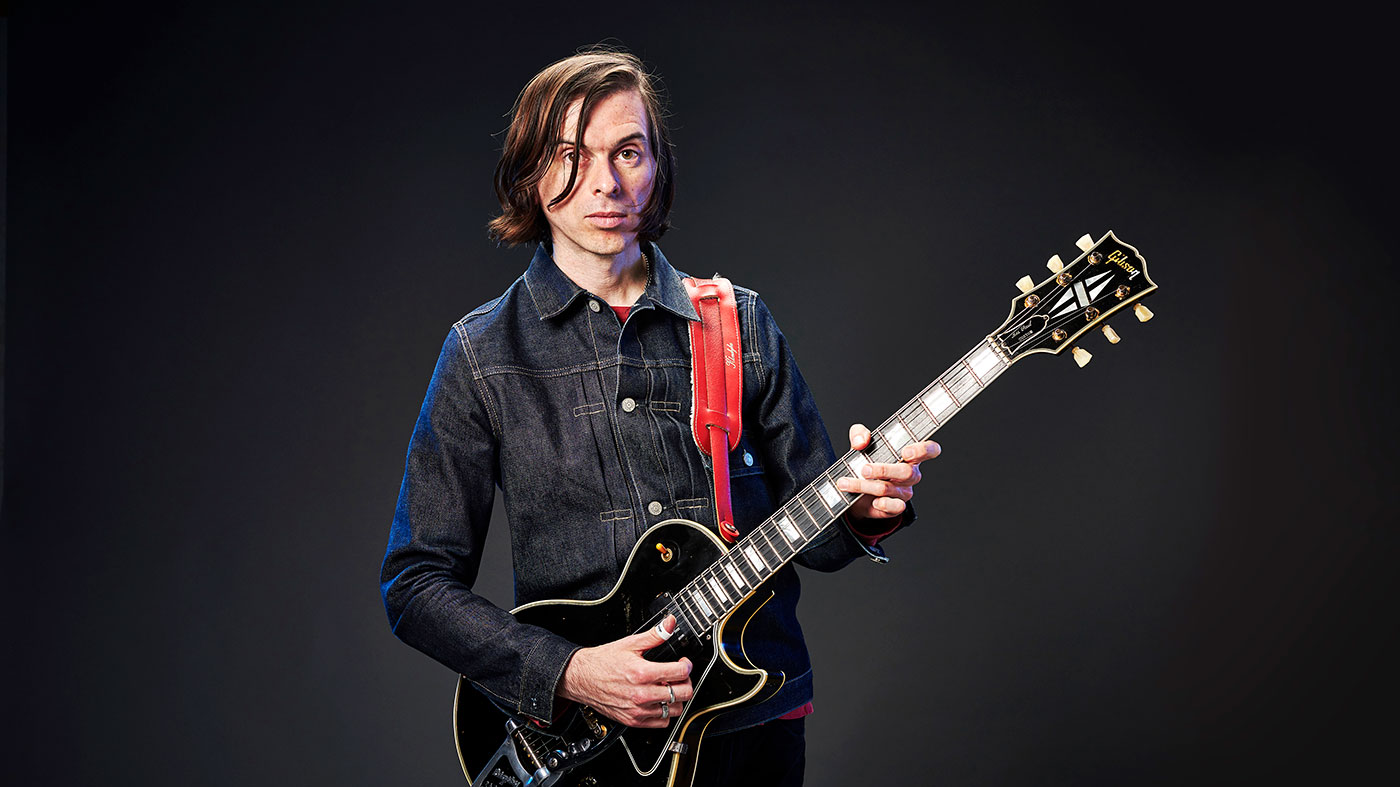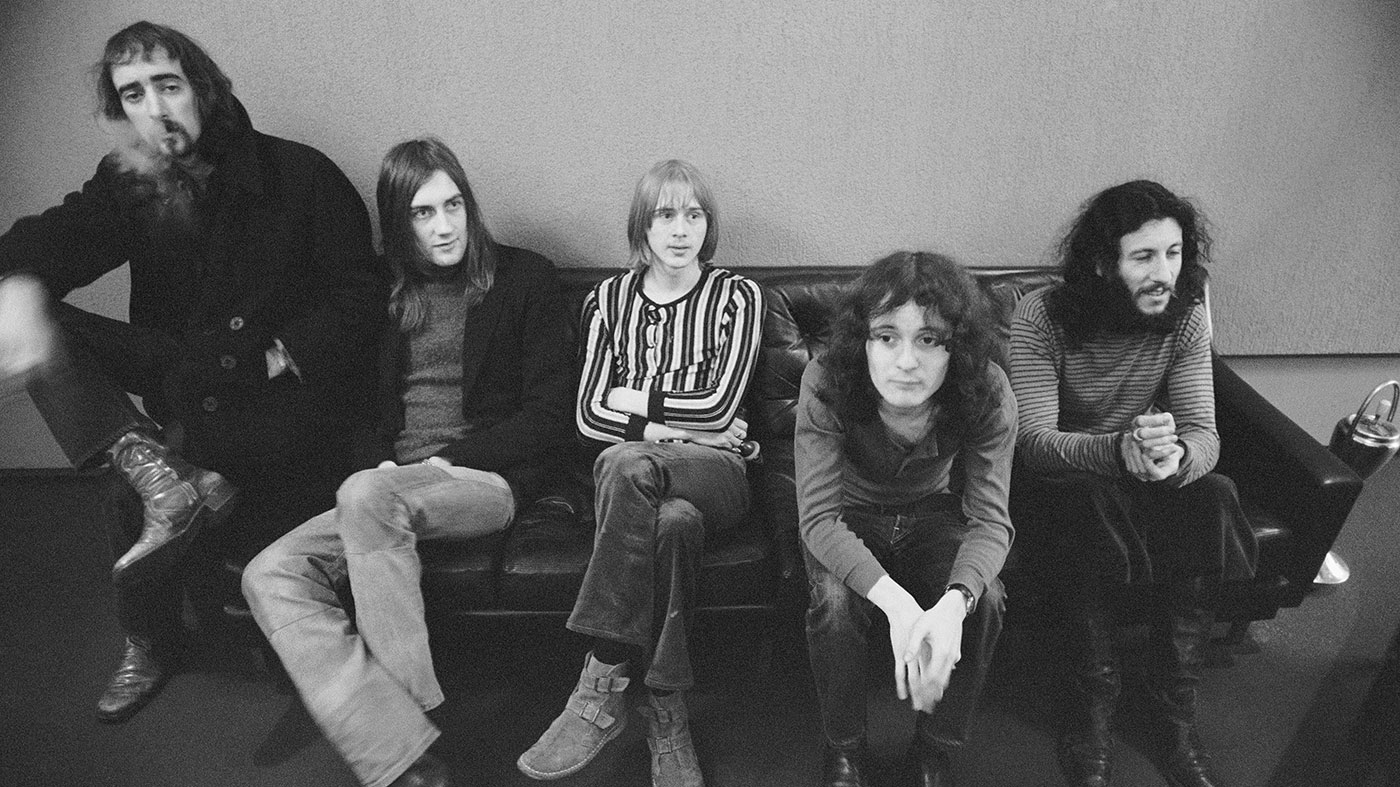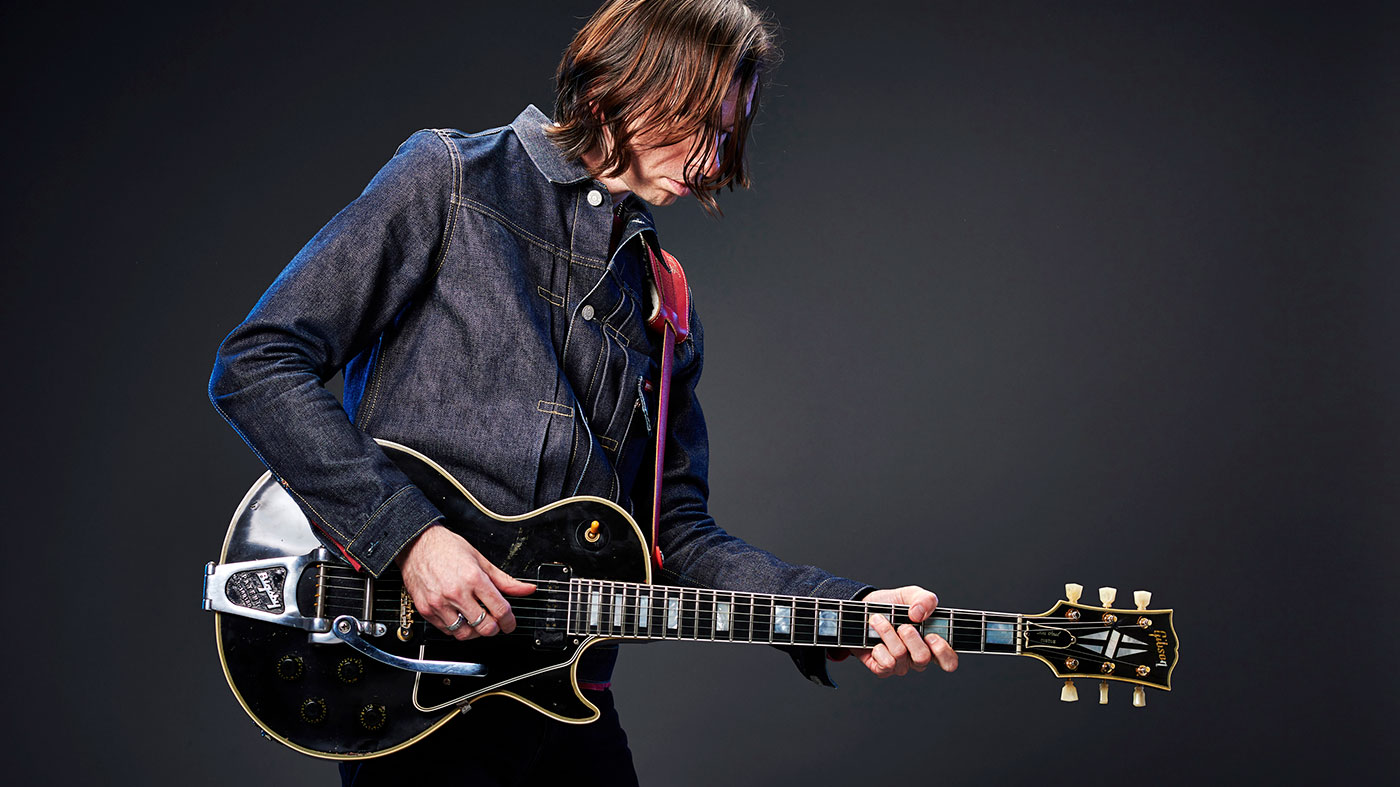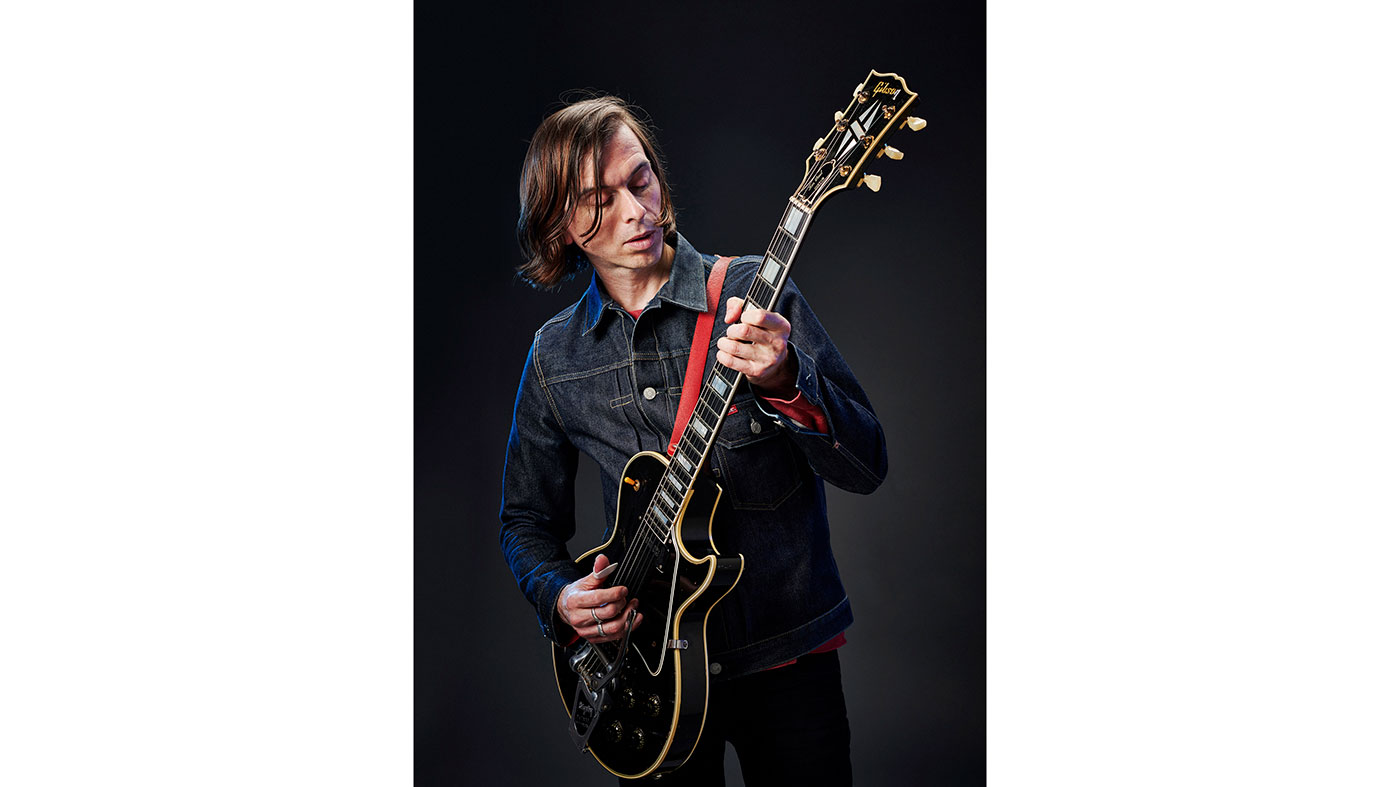Barrie Cadogan: “I’m trying to show Danny Kirwan a bit of love, really, because he’s been grossly overlooked”
The Little Barrie frontman on the former Fleetwood Mac guitarist, his touring rig and losing drummer Virgil Howe

The past few years have been particularly eventful for Barrie Cadogan. When we spoke to him, he had just finished a tour with Matt Johnson and The The, which included gigs in the UK and across Europe, America and Australia.
Johnson hadn’t toured since 2002, after deciding to take time out of the music industry’s glaring limelight. But once lured back, he decided to put a band together and, thanks to a certain Mr Johnny Marr, Barrie got the job playing guitar.
“Johnny had worked with Matt before,” Barrie tells us, “and recommended me to Matt. Matt recognised my name because he had Shazam’d the Better Call Saul theme, so he heard the name before.”

Then play on: the story of Fleetwood Mac guitarist Danny Kirwan
The aforementioned TV show theme music was another event in Barrie’s calendar, and we’ll be hearing how that came about later. Next was a gig in London to honour the memory of Fleetwood Mac’s Danny Kirwan, who died last June and had a been a longstanding influence on the guitarist.
First of all, though, we spoke about the tragic passing of Virgil Howe, who played drums in Barrie’s own band, Little Barrie. His sudden death came just prior to a tour that had been set up to promote the band’s newest album, Death Express, in September 2017. It was an event that was to change everything for the band and something that Barrie hasn’t spoken about until now.
What effect did Virgil’s death have on you and the band?
“[Virgil’s death] left us readdressing everything, really. It was such a massive hammer blow that we were completely disorientated. It was the day before our UK tour when Virgil died. We felt like we were in the best position for ages: we were getting some good press and getting some radio play. The album was done - we thought it was the best album we’d ever done. Bang: it was gone. It’s impossible to put into words. We just felt so bad for his family and his loved ones.
Get the MusicRadar Newsletter
Want all the hottest music and gear news, reviews, deals, features and more, direct to your inbox? Sign up here.
“We worked with Virgil for almost 10 years and he was a massive part of it. Although I wrote a lot of songs on my own, the reason the band sounded like it did is because of the energy between me, Virgil and Lewis [Wharton, bass]. Lewis and I didn’t think it was right for us to get someone else in and go out and tour the record - it felt wrong. We didn’t even know how we felt about it at the time. It was too hard to even look at the album cover at first. We were just so stunned by it, but we’ll see.”
Danny... boy
How did the Danny Kirwan tribute gig come about?
“By trying to show Danny a bit of love, really, because he’s been grossly overlooked. He was such a phenomenal guitar player. No disrespect to anybody else, but people who aren’t of his calibre get more attention and more praise. It’s nice to try and do something for someone who seemed a bit of an underdog of that scene - not in ability, but in exposure. We really enjoyed doing it and we thought, ‘Maybe we could do a gig one day if we have time and if we can make it work.’
It would have been nice if maybe a message could have got to him somehow
“In a way, it’s sad that it wasn’t in his lifetime. Not that we would have expected him to come to the gig or anything, but it would have been nice if maybe a message could have got to him somehow. It’s not just us, there are lots of people online who still talk about how much they love him and how influential he is to them.”
We understand it was this gig that made you research the gear the original Fleetwood Mac used in the late 60s?
“I think really early on Danny Kirwan was still playing a small Marshall, which he had with Boilerhouse, his band he was in before. He was using a Watkins Rapier guitar early on, then I think maybe with the Mac he got a bit more money and he got a Goldtop Les Paul with P-90s, a 50s one. I think they used Orange gear for a while. I don’t know if it’s true. Apparently, Peter [Green] sent it all back and I heard they bought Fender gear.
“It seems like Peter was determined not to use Marshalls. Early on in some of the Mac gigs he’s playing through a Vox - it might be a Vox bass amp - then Orange and Matamp stuff, but they seemed to settle on Fenders in the end. A mad mixture of stuff. I think sometimes for the US tours it was all Dual Showman Reverbs. For some of the UK stuff he seemed to have a mixture of Bandmasters, Tremolux - heads all piled up together, heads and cabs, so quite an interesting thing.”
Early Mac is associated with Les Pauls, but this wasn’t always the case, was it?
“I don’t always know who played what. Albatross is famously a Stratocaster, isn’t it? I heard on Jigsaw Puzzle Blues, Danny Kirwan used a Telecaster, or it could be the Watkins. It doesn’t sound like a Les Paul, though - it’s quite brittle but beautiful. It’s amazing, that sort of shaking vibrato. There are definitely some Fender-y sounds on some of their songs.”

Road worthy
I’ve got an old ’64 white Bassman piggyback, which is my favourite amp, but it was a bit too loud for The The
Talking about gear, what are you taking out on the road yourself now?
“It depends who I’m working with. With The The, I’m using newer amps, really, so we can hire stuff when we’re abroad and get the same sound. I’ve been using ’68 Custom Deluxe Reverbs - I was using two of those, running them at the same time, just for more weight, really.
“Sometimes I’ve used Super Reverbs and tweed Bassmans. I’ve got an old ’64 white Bassman piggyback, which is my favourite amp, but it was a bit too loud for The The. We did one gig where I thought, ‘This sounds amazing.’ But Matt was like, ‘You’re deafening all of us!’
“With Primal Scream, back then I was using Marshall Super Leads and we were just cranking them. We wanted more of that MC5 sort of vibe. It was Super Leads and simple pedal setup, a wah-wah pedal and a Fuzztone, really. I’ve got a 1961 brown Fender Super and sometimes I hook that up with the Bassman. It’s nice having the 12s and the 10s together.
“Also, I’ve got an amp that Frank Cooke built - he does JPF amps. I wanted something loosely based on a mid-60s Marshall with the KT66 tubes in. I love that sound: the ‘Beano’ record, A Hard Road, Bare Wires - that kind of sound. It’s less grunty, I suppose, but clear power. You get these beautiful harmonic overtones where the feedback is really musical. You can hear it in Fresh Cream and records like that. I really wanted something more in that vein as I had a lot of Fender-y kinds of amps.”
Have you recorded with the JPF?
“I think the JPF was on the album before Shadow, [King Of The Waves, 2011], but I AB’d that, a mixture of the Bassman or the JPF. On Death Express, virtually everything was done through that. All the bass was done through it as well, because it sounded amazing with Lewis’s old Fender P-Bass through it. We didn’t even change the settings on the amp, it just sounded good. We’d heard about people using guitar amps for bass. People like Carol Kaye, who we liked a lot.”

Getting the Saul Call
You recorded the well-loved theme song for TV’s Better Call Saul. How did that come about?
“It was out of the blue. The music director, Thomas Golubic, contacted either our publishers or our manager and said they really liked some of the stuff Little Barrie had done and that they were interested to see if we’d be up for writing a guitar theme that cuts dead on 20 seconds before it cuts to the first scene of each episode. They liked an old song we’d done on our second album called Why Don’t You Do It and they wanted something in that vein.
Over that weekend, I cancelled plans and made loads of demos
“I spoke to the music director over Skype and he said, ‘You know Breaking Bad, right?’ I said, ‘Yes.’ ‘You’ve seen it, right?’ ‘No…’ I had to be honest. He told me a bit about the show, and he didn’t mind that I hadn’t seen it. He was like, ‘Could you give us 17 different basic ideas in the same style?’ You get a brief where they’ll say things like, ‘Can you make it more wistful, more melancholic’ or something. You try and interpret what that means.
“Over that weekend, I cancelled plans and made loads of demos - just into GarageBand or something. On the Monday, I got together with Virgil and we recorded them all with him on drums, me on guitar and then put the bass on. I mixed them all that night and emailed them off. A week later we got an email back saying, ‘We really like them. Can you do 12 more?’ At the time, [they chose] number seven out of the 29. I thought, ‘Maybe this one or this one, they’re much stronger.’ They picked that one and now I can see why. At the time, I was like, ‘Really?’”
What lies ahead for you now?
“Lewis and I want to keep making music. I’ve written a few things and made a few rough recordings. I want to keep working with Matt in the future if he wants to, but I’ll be doing some of my own things again. I just want to make sure whatever we do next is of the standard that it should be, before we put anything out. Virgil was unique, he was a one-off and I feel fortunate to have made music with him. He was a really lovable guy, a very likeable, super-friendly guy. He brought a lot of positive energy to the band. Also, the side that people didn’t always see - him and I working on music together - was a totally different side. We’re heartbroken that our friend isn’t here any more, but we’re grateful for the time we had.
“Whatever we do next, we’ve just got to make sure it’s good. There’s a bond with Lewis and I. We’ve played together for so long that I don’t want that to stop. I’ve been playing with him for 18 years, poor guy!”
Death Express by Little Barrie is out now.
“Every note counts and fits perfectly”: Kirk Hammett names his best Metallica solo – and no, it’s not One or Master Of Puppets
“I can write anything... Just tell me what you want. You want death metal in C? Okay, here it is. A little country and western? Reggae, blues, whatever”: Yngwie Malmsteen on classical epiphanies, modern art and why he embraces the cliff edge











